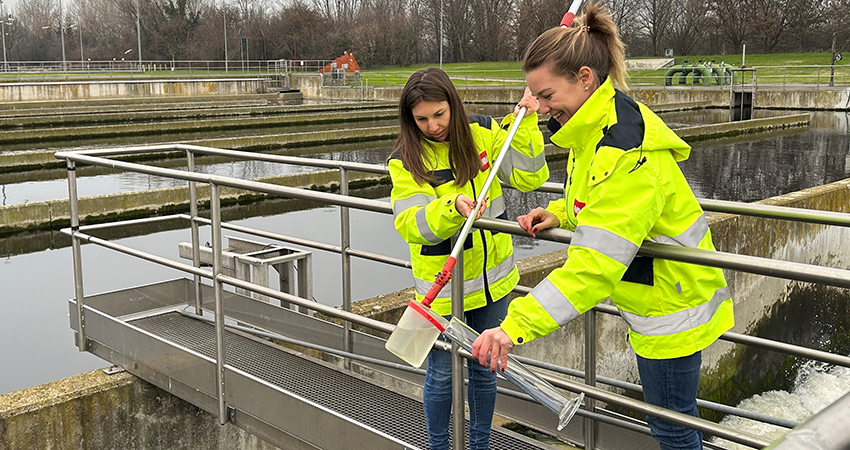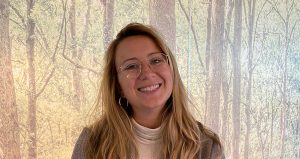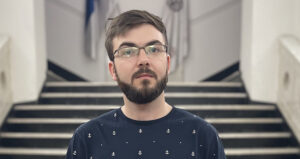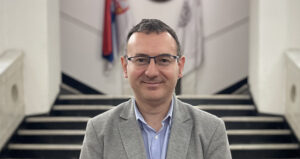Chiara and Carla: “Participating in EJWP can lead to better business results”

-
 Editorial Team
Editorial Team
Share article:
Chiara Brioschi and Carla Lanzini are both working in the Waste Water Treatment Division of MM Spa, a public-owned company responsible for water services in the city of Milan in Italy. Chiara and Carla were guest participants in the European Junior Water Programme (EJWP) Lombardia Training Week in January with EJWP groups 3 and 4. They combined their thoughts on this experience and are convinced participating in EJWP can lead to better business results.
What is your current work position?
“I am working as a process engineer at Nosedo Waste Water Treatment plant, and I am managing all water treatment stages, in order to guarantee the best performances in terms of contaminants removal and energy efficiency. I am also responsible for the analytical monitoring of pollutants’ removal toward process and technology optimization”, says Carla. Chiara is project manager of the Waste Water Treatment Plants Division. “I draw up calls for tenders, technical specifications, feasibility studies in order to implement the investment plan for the WWT sector.” Chiara also supports contract managers in the implementation and execution phases of activities, and supports the implementation of specific projects linked to research and development calls for tender.
What was it like to participate in the EJWP training week?
“Participation in this training week was very interesting because it was an opportunity to get to know other European people in our sector with whom we could exchange ideas and knowledge. Since it was focused mainly on soft skills, the training raised our awareness of the importance of communication for a better dialogue with colleagues, which also leads to better results at work. The role-play of building a bridge was fun, because the team’s qualities of collaboration, time management, team organization and different stress management had emerged.”
What value would you expect to bring to your organization and your career from external training and cooperation like in EJWP?
“Initiatives such as the EJWP are an additional opportunity for organisations to make themselves better known on a European level. Since master’s sessions are organised in different European countries, participants have the opportunity to see new plants and applied technologies and discuss the challenges and opportunities of the sector. By participating in this master’s course, employees of companies can improve their communication, collaboration and organizational skills, leading to a more efficient working climate and better business results.”
What are the benefits and/or challenges of a European water sector network?
“Being part of a network in your sector is an opportunity to meet new people, share ideas or for possible future international collaborations on topics of common interest or to exchange best practices. Sharing past experiences can also inspire others and learn from mistakes or successes.”
What is a water or environmental topic/area that you see as growing in importance or concern in the future?
“In our opinion it is increasingly important to develop circular economy projects. In the water sector, this can be achieved through the valorisation of purified water to be used for activities such as agricultural reuse; the valorisation of sewage sludge through nutrient recovery or the production of biogas and/or biomethane, heat and electricity; the activation of synergies between the various sectors to maximise the recovery of energy and resources by reducing disposal in the environment; the sharing of experiences, technologies, plants and resources in the circular economy among organizations.”
Are there specific needs in the Lombardia region?
“New Regional Regulation (RR 6/2019) requires treatment for combined sewer overflows and pushes on nature based solutions.”
What do you think about the development of soft-skills for water professionals?
“In technical fields like ours it is important to develop better communication and collaboration skills. In fact, the way of approaching and communicating with someone else has a great influence on the final result. Communication is also important to promote our work and new projects to citizens and stakeholders.”
Are there water innovations that you see as significant for further development and benefit?
“In wastewater treatment the development of new technologies to reduce sludge production and to recover energy and matter from sludge is increasingly important. Think of pyrolysis, htc, incineration and anaerobic digestion.”
What and where did you study?
“We both studied Environmental Engineering at Politecnico di Milano, Department of Civil, Environmental and Land Management Engineering.”

















